Olena Lennon
Former Title VIII-Supported Short-Term Scholar
202/691-4373
Schedule an interviewProfessional Affiliation
Adjunct Professor of Political Science and National Security, University of New Haven
Expert Bio
Olena Lennon, Ph.D. is an adjunct professor of Political Science and National Security at University of New Haven where she teaches such courses as the U.S. Foreign & Defense Policy, International Relations, Conflict Resolution, Comparative Politics, and American Government. She also taught Political Economy of Russia at the University of Bridgeport, and Social Statistics at Southern Connecticut State University.
She first came to the US as a Fulbright scholarship to obtain a master’s degree in Educational Administration at the University of Nebraska-Lincoln. She later earned an interdisciplinary Ph.D. in Educational Leadership and Higher Education with minors in Statistics and International Relations. On completion of her Ph.D., she moved back to Ukraine to fulfill her Fulbright obligations. She returned to the U.S. shortly before the onset of the Maidan revolution in November 2013 and the ensuing war in eastern Ukraine. With her family remaining in the active war zone, she has kept her finger on the pulse through direct communication with people on the ground, local media outlets, and frequent visits. She has participated in several panels related to issues in Ukraine, facilitating a more informed and objective analysis of the ongoing Russo-Ukrainian war and not only.
Dr. Lennon’s work appeared in Foreign Affairs, The National Interest, Nationalities Papers, Journal of Political Risk, Yale Global, Demokratizatsiya, Higher Education in Europe, and others. Her current research is focused on questions of political legitimacy, conflict management, and identity politics.
Wilson Center Project
Lobbying for Ukraine: Perceptions of Advocacy Groups in the Washington, D.C. Area on New Challenges and Opportunities in Influencing the U.S.'s Foreign Policy
Project Summary
Lennon's current research focuses on the relationship between Ukraine’s advocacy groups in the U.S.— ranging from community organizations, business associations, and cultural organizations to Ukraine’s official embassy staff, academic institutions and think tanks — and U.S. policy makers. The study explores the two-fold nature of this relationship: on the one hand, Ukraine’s advocates trying to influence U.S. foreign policy in pursuit of specific goals related to Ukraine-U.S. relationship, and on the other — the U.S. representatives mobilizing the support of ethnic communities as a voting constituency or as a support base for a particular policy. Within this relationship dynamic, Lennon's goal is to analyze ways in which the interests of Ukrainian advocates and U.S. policy makers converge and diverge. She analyzes this convergence and divergence from two analytical approaches: essentialist and constructivist. The essentialist perspective assumes that various advocacy groups have pre-determined goals pertinent to Ukraine’s national interest, the group’s specific interest, the U.S. national interest as a function of its relationship with Ukraine, or any combination of the above. The second, constructivist, perspective assumes that convergence and divergence of goals happens as a result of the give-and-take democratic processes, including lobbying, in which various levers of persuasion and influence are utilized in pursuing specific goals. Given the recent changes in Ukraine’s administration, Lennon's study also seeks to understand the new challenges and opportunities that Ukraine’s advocates in the U.S. face in the new political climate.
Insight & Analysis by Olena Lennon
- Article
- US Foreign Policy
What Did Zelensky Accomplish During His US Trip? | Wilson Center Expert Response
- By
- Olena Lennon,
- Mykhailo Minakov,
- William E. Pomeranz,
- and 1 more
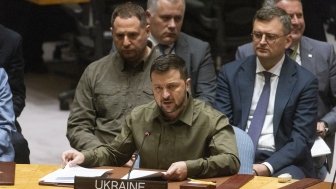
- Past event
- Rule of Law
Causes and Consequences of Russia’s Year of War in Ukraine
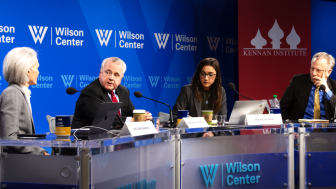
- Blog post
- Conflict Resolution and Peacebuilding
Long Read: Zelensky’s Visit to Washington Marked a Strategic Inflection Point
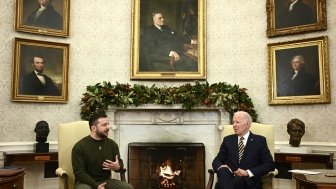
- Blog post
- Conflict Resolution and Peacebuilding
Why Putin Is Scaling Down His Political Aims while Scaling Up the Fight
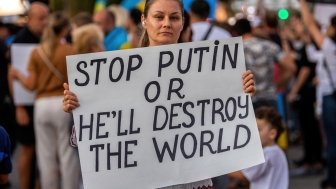
- Past event
- International Security
The Russian War in Ukraine: The Situation After Two Weeks

- Past event
- Rule of Law
Ukraine's Security Council and Its Impact on Politics and Media
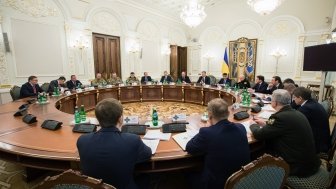
- Blog post
- Governance
Ukraine’s Decentralization will Empower the Center, but Not in Ways You Think
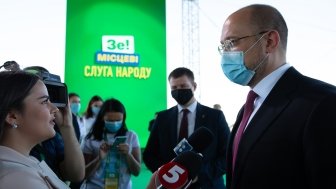
- Past event
- Elections
Local Elections and the Future of Local Self-Governance in Ukraine


